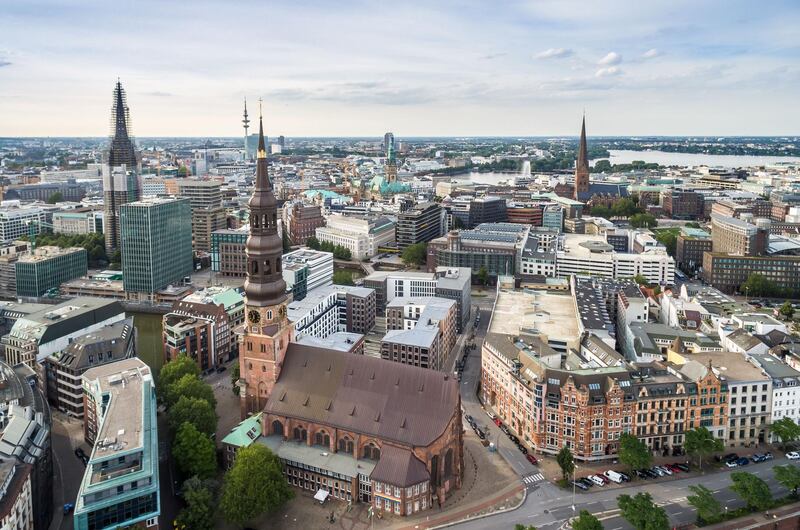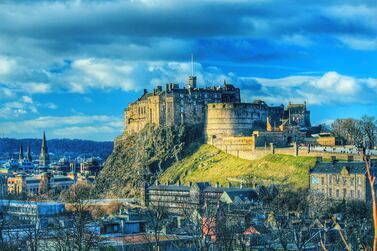When John Lennon and Paul McCartney wrote the lyrics for their legendary song, Magical Mystery Tour, it's very likely they were inspired by their own early musical experiences in Hamburg. The German city was the venue of the earliest Beatles concerts back in 1960.
The sun has just set and I am standing on Beatles-Platz, next to glittering metal sculptures of the Fab Four, surrounded by the gaudy neon lights of Hamburg's nightlife quarter, the Reeperbahn. A short walk away, many of the gritty clubs where the young Liverpudlians played their first gigs are incredibly still going strong today, such as the Indra and Kaiserkeller, where young start-up bands dream to follow in the footsteps of their heroes. But The Beatles' legacy is just the tip of Hamburg's musical iceberg.
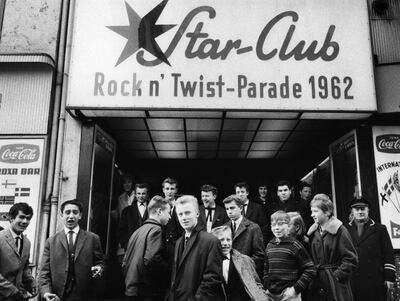
I have been drawn back several times to this intriguing maritime city, which proudly calls itself a Free Hanseatic port – more Scandinavian than Germanic. There can be few destinations in Europe that offer so much when it comes to music, be it classical concerts and operas, jazz or punk and heavy metal, plus there's a pulsating techno and house clubbing scene that is fast surpassing the more famous venues of Berlin. And during the day, I am still discovering new places, be it exhibition venues, a bargain-filled flea market, the simple joys of "kaffee und kuchen" in a gilded baroque cafe, or the surprising restaurant scene here. Otherwise I'm simply wandering along the banks of the Elbe as giant container ships and cruise liners slowly chug along to moor at the busy port.
To start digging down to the roots of Hamburg's musical heritage, the first stop of my mystery tour is the Composers Quarter, a quiet neighbourhood where several grand mansions have been transformed into intimate museums dedicated to famous composers associated with the city, including Brahms, Mendelssohn, Telemann and Mahler. My guide, Guido Neumann, explains that "many great musicians were drawn to live and work in Hamburg by the patronage of the port's rich merchants, who also founded Europe's first public opera house way back in 1678. Then in the 1850s, a shipping magnate bankrolled our grand Laeiszhalle concert hall, but only if it was named after him."
Neumann directs me to nearby St Michael's church by noon, where the soaring gothic interiors are filled with melodic organ music during the daily free concert. Hamburg is again attracting classical music-lovers from across the globe since the opening three years ago of its state-of-the-art Elbphilharmonie. The futuristic glass and metal building, which cost a staggering €870 million (Dh3.6 billion), dominates the city skyline from its docklands location in the Unesco World Heritage-listed Speicherstadt neighbourhood, its towering reflection shimmering in the Elbe river. Experts agree that the acoustics of the Great Hall are unmatched anywhere in the world.
I have seen two very different concerts here – a philharmonic orchestra playing Beethoven and the seminal German industrial rock band, Einsturzende Neubauten. Both were quite simply unique experiences, from taking the endless escalators up to the top of the building, to joining the crowds gaping at awesome views over Hamburg, then sitting in the immense circular auditorium whose steep sides encircle the musicians who perform right in the middle of 2,000 spectators.
Weekends in this German city are always jam-packed with things to do. While the so-called Art Mile is dominated by blockbuster shows at the monumental Kunsthalle, with 2020 devoted to the likes of Goya, Tiepolo and Max Beckmann, I head to the more alternative, challenging exhibitions at the Deichtorhallen, two covered food markets from the 1900s where the immense open spaces are reserved for cutting-edge contemporary art, installations and photography. And while Hamburg is frankly not a top shopping destination, I am happy looking for bargains in the Flohschanze, a brilliant Saturday flea market in hip Schanze, the old meatpacking district, where the ancient abattoirs are squatted by hundreds of stalls selling vintage fashion, rare vinyls and expensive antiques alongside €1 bric-a-brac.
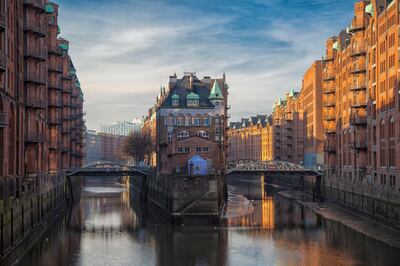
If the weather permits, it takes just a few rays of sunlight to send Hamburgers outside. A favourite spot for picnics, boating or just sitting out on cafe terraces is the calm Alster lake, right in the heart of the city. From the first days of summer, the most popular spots are hidden sandy beaches along the Elbe, kicking off at Strand Pauli, an urban beach resort where people party until the early hours, then walk over to the raucous 5am Sunday Fish Market, with live rock and roll bands and dancing in the historical auction hall.
When The Beatles were playing in Hamburg 60 years ago, their world revolved around the sleazy Reeperbahn, main drag of the notorious seamen's neighbourhood of St Pauli. As Lennon famously said: "I was born in Liverpool but I grew up in Hamburg." I'm not sure what he would think today, as I realise, while wandering the busy streets of St Pauli, which are filled with fashionable hipsters, that this is now the hottest part of town, with gourmet bistros and vegan diners and in-vogue boutiques.
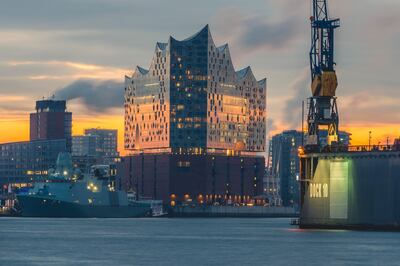
Fortunately, the bohemian edge is still here, with numerous live music venues, plus a mega festival of 450 concerts in September. I check out a screaming goth-rock band from Norway in the legendary Molotow club, followed by a packed 1970s-themed roller disco in Mojo, before catching up with Stefanie Hempel, a ukulele-playing St Pauli local who runs the definitive Hamburg Beatles tour. Listening to her strum memorable songs such as Love Me Do and Please Please Me outside clubs where they were first performed quickly touches everyone's emotions, and we all soon join in the singing. It is a memorable evening, and like all of my trips to Hamburg, an experience that enthrals.
